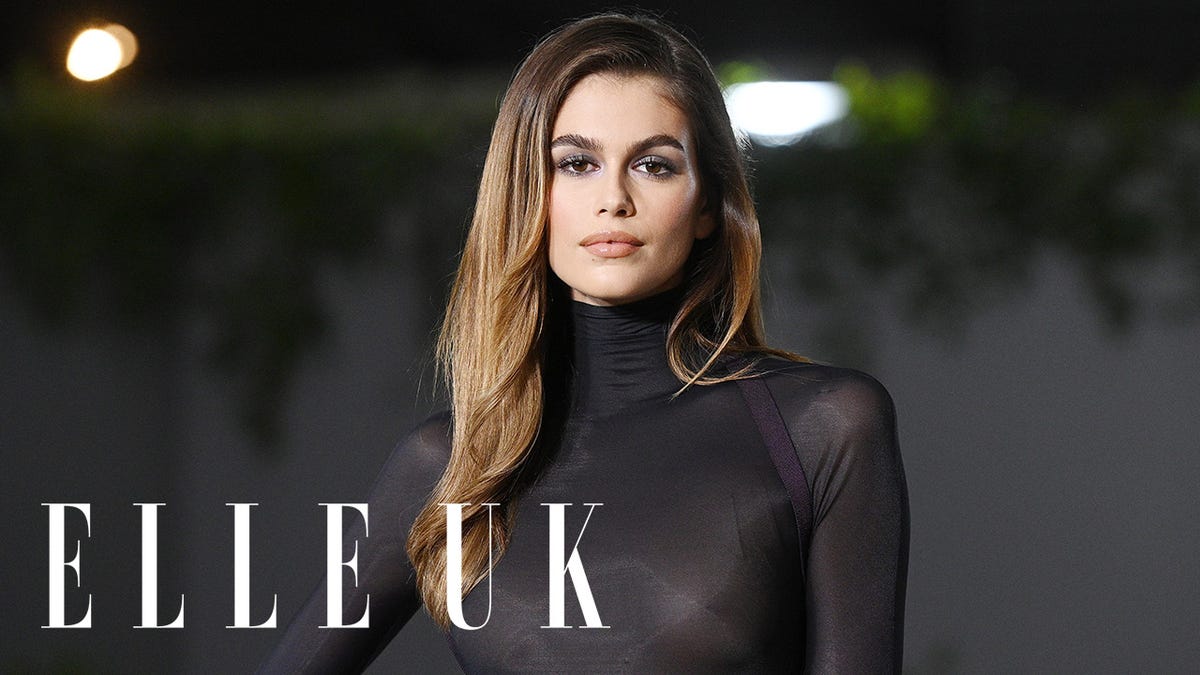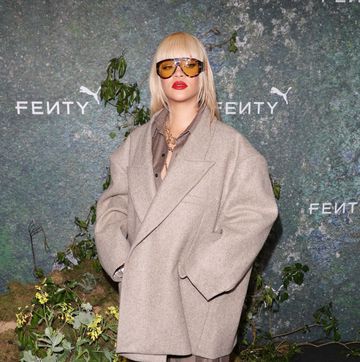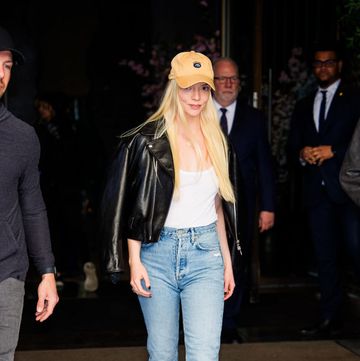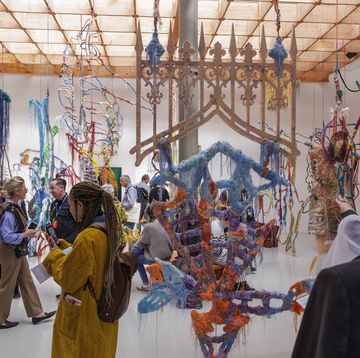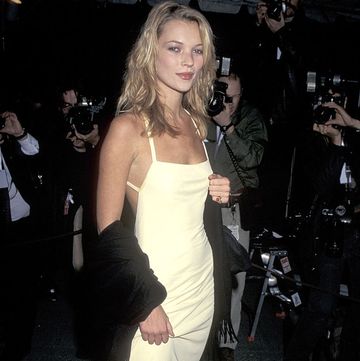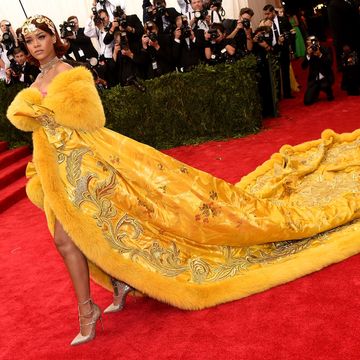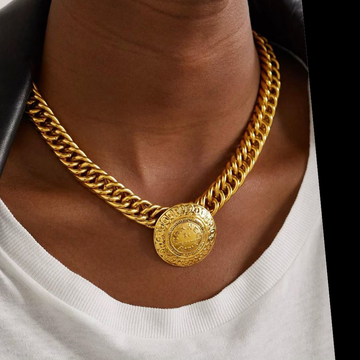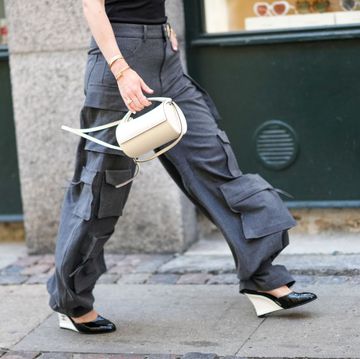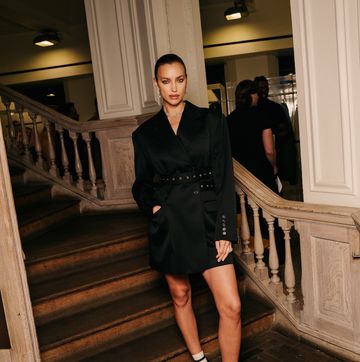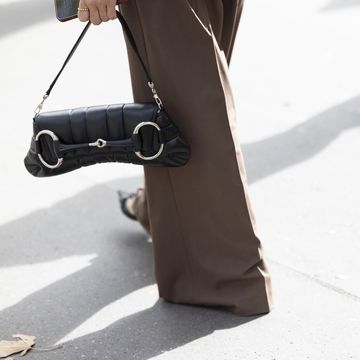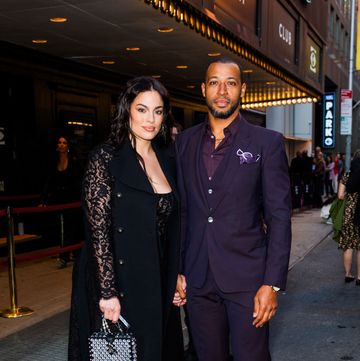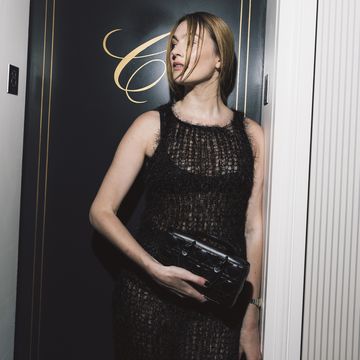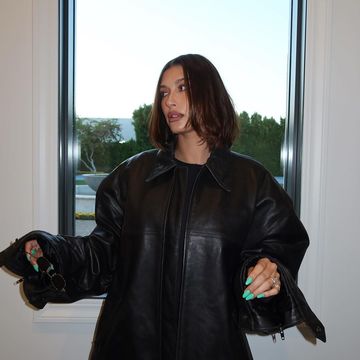Arizona Muse, she of the impossibly strong brow, cool gaze, slick bob, broad smile and almond eyes, has just made a surprising confession. Growing up, she wanted to be a boy. Or rather, she felt reluctant about being a girl.
We’re sitting in a cafe, having the realest of talks over the daintiest cups of mint tea. And Arizona, all 26 years of her, is getting self-reflective.
She’s telling me about how she was a late bloomer. ‘We were all trying to be boys and be tough. It took me a while to come into myself, to come into my sexuality,’ she says. And it’s only been in recent years that she’s allowed herself to fully embrace the traditional expressions of femininity.
‘I wear make-up and enjoy it now, whereas before I felt like I had to complain about it like, “Oh my god, I’m wearing so much make-up, it looks awful.” I am less apologetic about that now. Sometimes I just want to wear a dress.’
I’d expected some light and fun girl talk from Arizona – fame, love, selfies, clothes – and the unique joys and pains of being named after a place, something I can relate to. (‘People can’t seem to wrap their head around it. But there are plenty of us with names like India, Georgia and Virginia. And yet people still act like it’s the first time they’ve ever heard of such a thing!’)
But, no. Instead, Arizona wants to talk about what it means to be a woman on a deeper, more theoretical level, which makes for a more interesting interview for me. Especially considering Arizona isn’t actually carrying much in her black leather Bottega Veneta handbag that’s worth reporting to you anyway (‘Just my phone, brown eyeliner and some ChapStick’).
Arizona is properly famous. Her unmistakable face has carried huge, career-defining beauty and fashion campaigns (Estée Lauder, the house formerly known as Yves Saint Laurent, Louis Vuitton, Fendi and Next), agenda-setting runway shows (Prada and Louis Vuitton), and countless magazine covers. Models.com ranks her among the industry’s most influential icons and highest earners. But it’s taken her years to grow comfortable with her feminine self.
She has developed a reputation for having a quiet reserve, a quality the fashion media often hailed as a sign of maturity. ‘But I wasn’t mature,’ she clarifies. ‘I was just quiet so I didn’t say anything stupid. But I wasn’t thinking anything clever.’ It’s taken her years – break-ups, broken friendships, and work snags – to get to a place where she can boldly say exactly what she thinks. And I have the feeling she is on the cusp of a new chapter of her life in which her voice is as strong as her celebrity.
To understand why Arizona getting in touch with her girlie side is such a big deal, you have to go back to her childhood, growing up as a bare-faced, half-English, half-American tomboy in New Mexico. Her mother Davina, a textile restorer, and her father Garry, an American art dealer, had Arizona in Tucson (hence her name), then moved to London for three years, before eventually settling in Santa Fe, where they raised the model and her younger brother, Theodore. Arizona describes her parents as ‘creative, eccentric people who never had 9-to-5 jobs’.
She says her mother’s first-wave feminist beliefs impacted her developing sense of self. ‘In my group of friends, a lot of our mothers were about 40 when they had us. Those women were in a time when they were still fighting for themselves and for their rights,’ she says. ‘And that needed to happen. But in a way, it kind of degraded femininity because it said, “Oh, the prissy housewife, she’s just letting her husband rule the world.”’
As a result, little Arizona and her pre-teen girlfriends grew up wanting to be one of the boys. ‘All of my friends were trying to be as tough as the boys. I didn’t wear any nail polish, wouldn’t put on make-up. I was curious about it but it wasn’t cool, which is really strange. I wish that it had been encouraged and fostered, to see what it’s like to be girlie, and to try these really feminine things that are fun and that I really enjoy now.’
Throughout our talk, she consistently makes a case for a more traditional brand of femininity. ‘It’s about mutual respect,’ she says. ‘When I’m 30 or 40, I’ll probably have a lot more to say about all of this.’
She credits motherhood with having got her this far in the quest to figure out exactly who Arizona Muse is. She had her son Nikko aged 19 with her ex-boyfriend Manuel Quintana, before she moved to New York and made it big as a model. But it was her career in fashion, and the single working-mother juggle, that taught her some of life’s hardest lessons.
‘I’ve grown up a lot and become a lot more assertive. Like, I’m surer about what I want and what I don’t want, and how to say no. I used to say yes to everything and feel resentful later. I was so unclear about what made me happy and what didn’t.’
Is it hard for her to say no now? ‘Not since I learned how. It doesn’t matter what your job is, or whether it’s your family, you just have to learn to say no and not feel badly about it. And learn that whatever people’s reactions are, that’s their own stuff. If we were all clearer, this world would run so much smoother.’
Arizona on:
Instagram: ‘I haven’t been working for very long. My career is one of the shortest ones. And I’ve seen so much change already. The Instagramming! I don’t want to see what someone’s having for breakfast every day. And I forget to take selfies. So many missed selfie opportunities! And then when I do it I wonder, “Oh my god, is this weird? Are people going to think I’m showing off?” It’s a weird feeling of insecurity and wondering if anyone is going to like the picture.’
Friendship: ‘It’s better than therapy because you get to talk through your problems while still having fun together. I’ve become a lot clearer about my boundaries. Like, this is what’s going to happen, this is what I’m OK with. And I’ve learned to read people better.’
Sexuality: ‘I think that bisexuality and heterosexuality and homosexuality all exist, and they all need to be honoured. And I also think that, in a way, sometimes we’re just making too big a dealout of it. It’s like, just let people do their thing and move on.’
Photo credit: Kerry Hallihan
